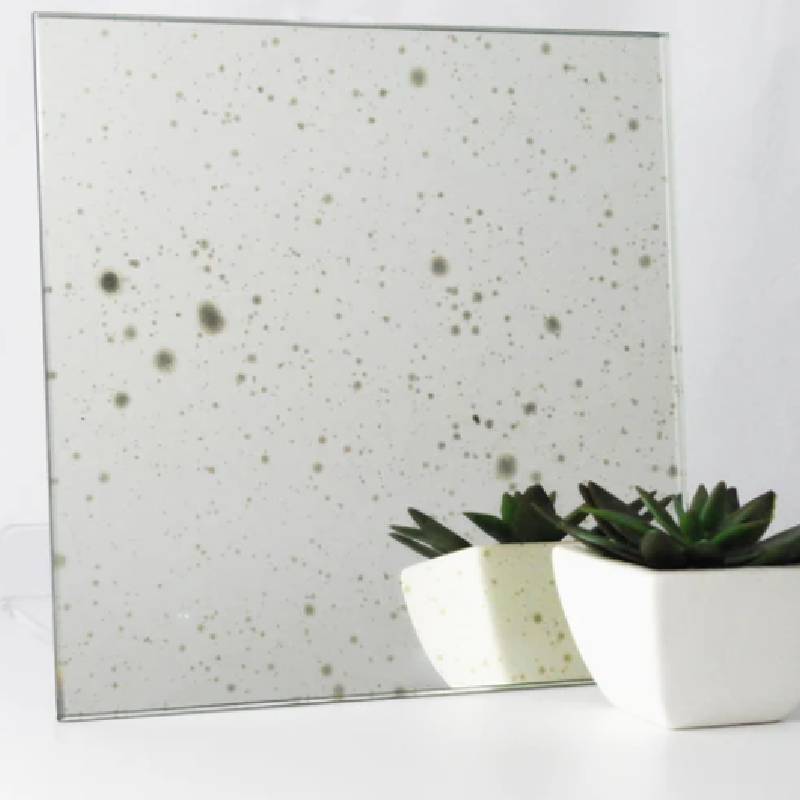Float glass is a type of glass that is widely used in the construction and automotive industries due to its excellent optical clarity and smooth surface. The production of float glass involves a unique process that was developed in the mid-20th century. This method provides a high level of uniformity and quality, making float glass a preferred choice for various applications.
The float glass manufacturing process begins with melting raw materials, which typically include silica sand, soda ash, and limestone, among others. These ingredients are heated in a furnace to form molten glass. The key feature of the float glass technique is that this molten glass is then poured onto a molten tin bath. This combination of glass and tin allows the glass to spread out and form a flat, even sheet as it cools. The tin provides a smooth surface, which leads to the glass having a flawless and polished finish.
Once the glass has cooled and solidified, it is cut into sheets of various sizes, depending on the intended use. Float glass can be further processed to enhance its properties. For instance, it can be treated for safety purposes, such as tempering or laminating, to make it more resistant to breakage. Additionally, float glass can be coated to improve energy efficiency, reflecting heat and UV light, making it suitable for modern buildings.
float glass definition
The versatility of float glass has made it integral to many areas of design and architecture. It is used in windows, facades, and even interior partitions, providing natural light while maintaining thermal insulation. In the automotive industry, float glass is used in windshields and side windows, where safety and visibility are paramount.
It's noteworthy that the float glass process is not only about quality; it is also relatively environmentally friendly
. The materials used can be recycled, and modern manufacturing techniques strive to reduce energy consumption and emissions during production.
In conclusion, float glass is a remarkable invention that has significantly impacted both construction and automotive industries. Its unique production process, resulting in high-quality, flat glass sheets, has established it as a standard material in architecture and vehicle design, highlighting the balance between functionality and aesthetics in modern engineering.
 Afrikaans
Afrikaans  Albanian
Albanian  Amharic
Amharic  Arabic
Arabic  Armenian
Armenian  Azerbaijani
Azerbaijani  Basque
Basque  Belarusian
Belarusian  Bengali
Bengali  Bosnian
Bosnian  Bulgarian
Bulgarian  Catalan
Catalan  Cebuano
Cebuano  Corsican
Corsican  Croatian
Croatian  Czech
Czech  Danish
Danish  Dutch
Dutch  English
English  Esperanto
Esperanto  Estonian
Estonian  Finnish
Finnish  French
French  Frisian
Frisian  Galician
Galician  Georgian
Georgian  German
German  Greek
Greek  Gujarati
Gujarati  Haitian Creole
Haitian Creole  hausa
hausa  hawaiian
hawaiian  Hebrew
Hebrew  Hindi
Hindi  Miao
Miao  Hungarian
Hungarian  Icelandic
Icelandic  igbo
igbo  Indonesian
Indonesian  irish
irish  Italian
Italian  Japanese
Japanese  Javanese
Javanese  Kannada
Kannada  kazakh
kazakh  Khmer
Khmer  Rwandese
Rwandese  Korean
Korean  Kurdish
Kurdish  Kyrgyz
Kyrgyz  Lao
Lao  Latin
Latin  Latvian
Latvian  Lithuanian
Lithuanian  Luxembourgish
Luxembourgish  Macedonian
Macedonian  Malgashi
Malgashi  Malay
Malay  Malayalam
Malayalam  Maltese
Maltese  Maori
Maori  Marathi
Marathi  Mongolian
Mongolian  Myanmar
Myanmar  Nepali
Nepali  Norwegian
Norwegian  Norwegian
Norwegian  Occitan
Occitan  Pashto
Pashto  Persian
Persian  Polish
Polish  Portuguese
Portuguese  Punjabi
Punjabi  Romanian
Romanian  Russian
Russian  Samoan
Samoan  Scottish Gaelic
Scottish Gaelic  Serbian
Serbian  Sesotho
Sesotho  Shona
Shona  Sindhi
Sindhi  Sinhala
Sinhala  Slovak
Slovak  Slovenian
Slovenian  Somali
Somali  Spanish
Spanish  Sundanese
Sundanese  Swahili
Swahili  Swedish
Swedish  Tagalog
Tagalog  Tajik
Tajik  Tamil
Tamil  Tatar
Tatar  Telugu
Telugu  Thai
Thai  Turkish
Turkish  Turkmen
Turkmen  Ukrainian
Ukrainian  Urdu
Urdu  Uighur
Uighur  Uzbek
Uzbek  Vietnamese
Vietnamese  Welsh
Welsh  Bantu
Bantu  Yiddish
Yiddish  Yoruba
Yoruba  Zulu
Zulu 

